When the government of Kenya announced that the Covid- 19 pandemic had hit the country in March 2020, many businesses were thrown into panic mode. Many were caught unaware, and had no plans on how to navigate the health and operational challenges brought about by the pandemic.
Action planning
However, at Fides Kenya farm things were different. The company which is part of the Dümmen Orange group started to re-strategize early once the pandemic was reported in various countries across the world.
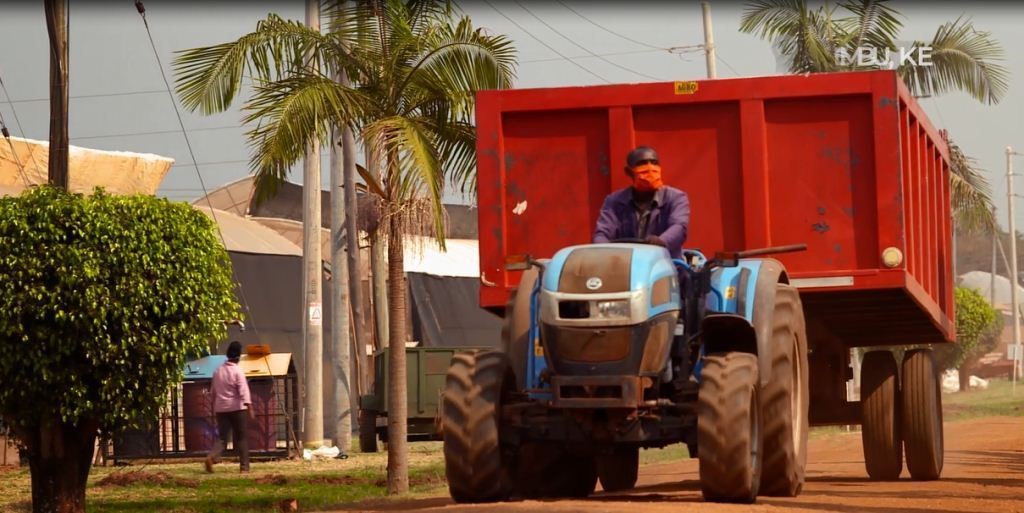
Mr. Kirima Nturibi, the Compliance and Quality Manager at the farm says, “before Covid -19 got into the country we had already started various plans which were a requirement at Fides Kenya/Dümmen Orange group. One of them was a Covid-19 action plan.”
Nturibi adds that all guidelines that were issued by Government of Kenya/Ministry of Health to combat the spread of the disease were adhered to by all irrespective of one’s position.
“We were all in this thing together. Restrictions and rules applied to all including managers. We went shopping at the company’s makeshift grocery stall,” says Mr Nturibi.
Cushioning the workers
The Farm Managing Director, Mr. Willem Selen, admits that their European market was severely disrupted; however, the company was able to cushion the staff from the effects of the pandemic. “Many customers withdrew their orders and we had to send staff on paid leave. The impact remained quite modest, but as a larger sector there was quite some impact such as economic damage,” said Mr. Selen.
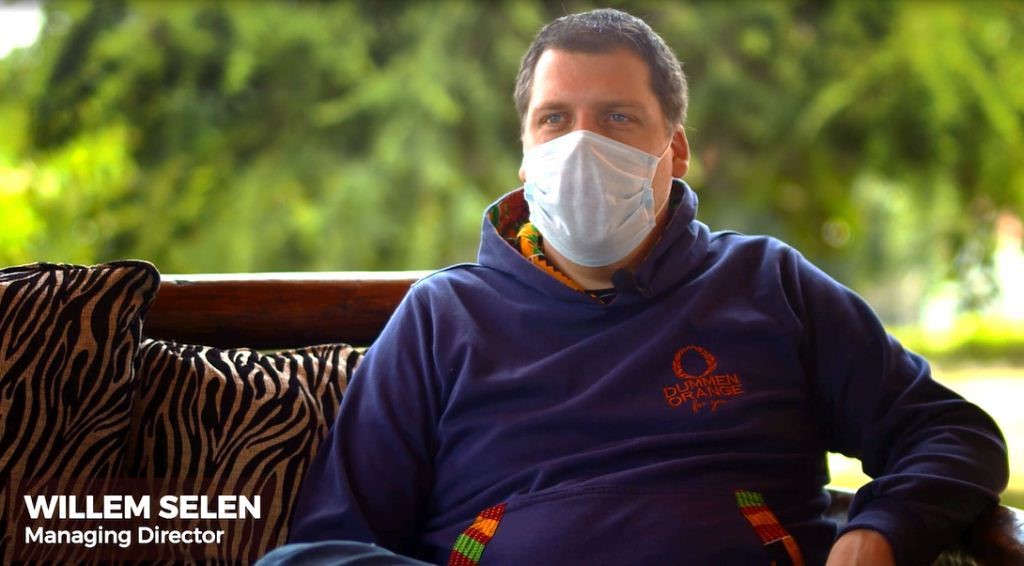
Selen added that the farm adhered to all the guidelines set out by the Ministry of Health, the core workers had to work from a distance while others had to work from home.
“Management staff worked from home and the space that they created was used. Halls that were being used for meetings were transformed into processing areas to observe the social distancing rule,” said the Director.
Mr Lukah Mwangi who works in the crop protection section says that, they did not expect the pandemic to hit Kenya very fast. However, the company put in place mechanisms to ensure that all workers were protected especially those residing outside the company’s premises. “Due to the pandemic, the company gave workers who reside outside of the farm the option of coming and living with their colleagues within the farm. This was a good move as we saw one another as a larger family,” said Mwangi.
Ms Fridah Warui, the workers welfare committee representative said, the company built a number of structures within the farm to ensure that the workers were protected.
“We built temporary houses to ensure that all employees came into the camp to avoid moving from outside. We also built a makeshift grocery stall, a barber shop and also provided beds and mattresses to workers to avoid movements in and out of the farm,” explained Ms Warui.
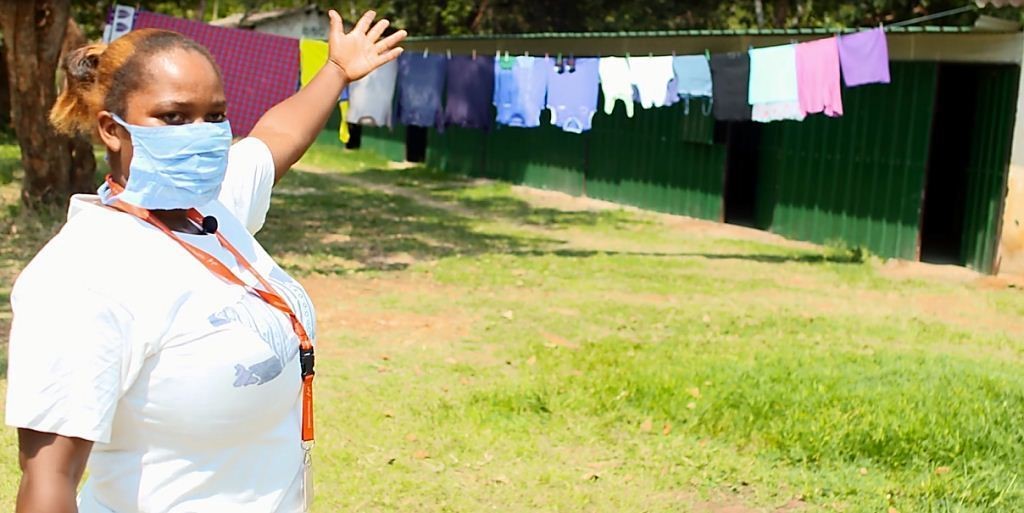 Ms. Fridah Warui, welfare committee representative shows some of the temporary houses build for the workers.
Ms. Fridah Warui, welfare committee representative shows some of the temporary houses build for the workers.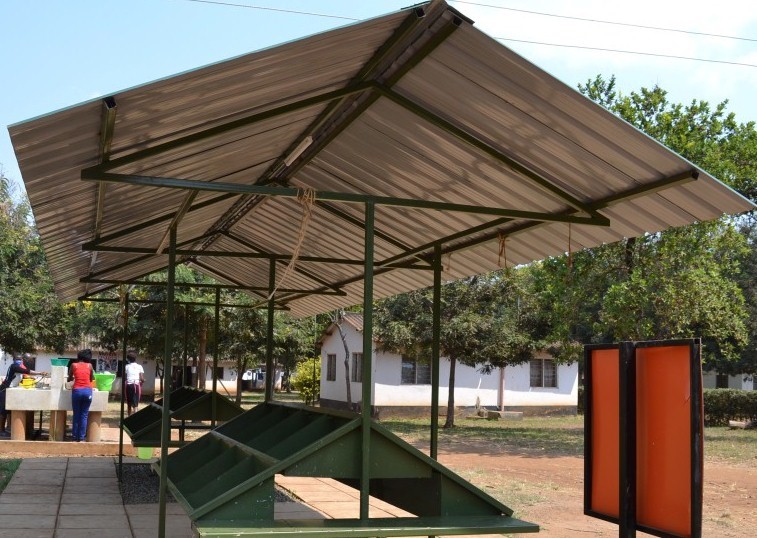 A makeshift grocery stall at Fides Kenya/ Dümmen Orange farm
A makeshift grocery stall at Fides Kenya/ Dümmen Orange farmMr. Robert Rubia, the health and safety committee representative said the company initiated several measures aimed at protecting the workers. “We produced several masks for our employees. We gave each employee two masks to avoid continuous re-usage of the same. We have a clinic which was ready to serve staff in case of an outbreak however we were lucky as we did not encounter any high temperatures that could raise an alert,” said Mr Rubia.
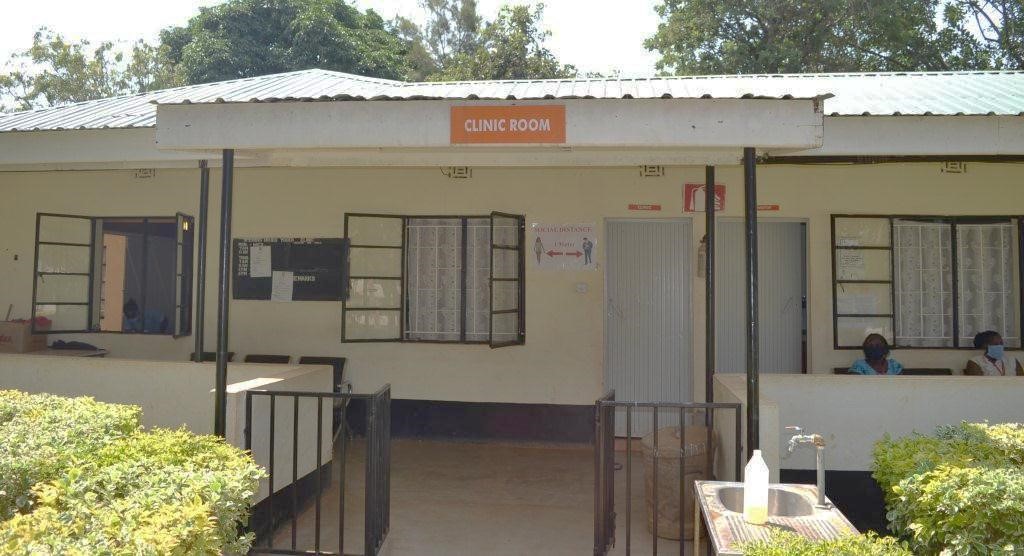 The farm clinic
The farm clinic
Passing the tax relief benefits to other workers
Mr Mark Muchina, the Human Resource Officer said some workers who were caught up in the partial lockdown announced by government, in some counties such as Nairobi were encouraged to continue with their annual leave, to avoid risking the entire company. The company also compensated them to ensure that they don’t loose on their pay. “The staff who had not travelled back, continued their annual leave, and staff on higher tax bracket made personal contribution (from the tax relief given by government) to support those affected by the pandemic both within the company and the community,” said Mr Muchina.
Further, Fides Kenya is among the 29 companies, members of the Kenya Flower Council (KFC) which received food packages to support/cushion some of their workers. The food package was an initiative of Hivos through its “Women @Work Campaign, in partnership with the Kenya Flower Council (KFC), Ufadhili Trust, Femnet, Kenya Human Rights Commission and Haki Mashinani.
Mr. Henry Wera, regional programme officer, Women @Work campaign-Hivos, East Africa lauded initiatives by farms to support their workers.
“We need to start thinking on what can we do together with employers, and unions in order to find a sustainable solution to cycles of pandemic. Today is Covid-19, there may be a pandemic after Covid, how will we be able to react, we should not wait to find ourselves in the circumstances that we are now in, if its diversification of our income streams, then we ask ourselves what can we do to prepare our workers and companies for sustainability in terms of diversifications, diversifying the income streams for these companies.”
By Maina Wambugu – Ufadhili Trust (www.ufadhilitrust.org )
Ufadhili Trust has been one of the Women@Work implementing partners in East Africa.




